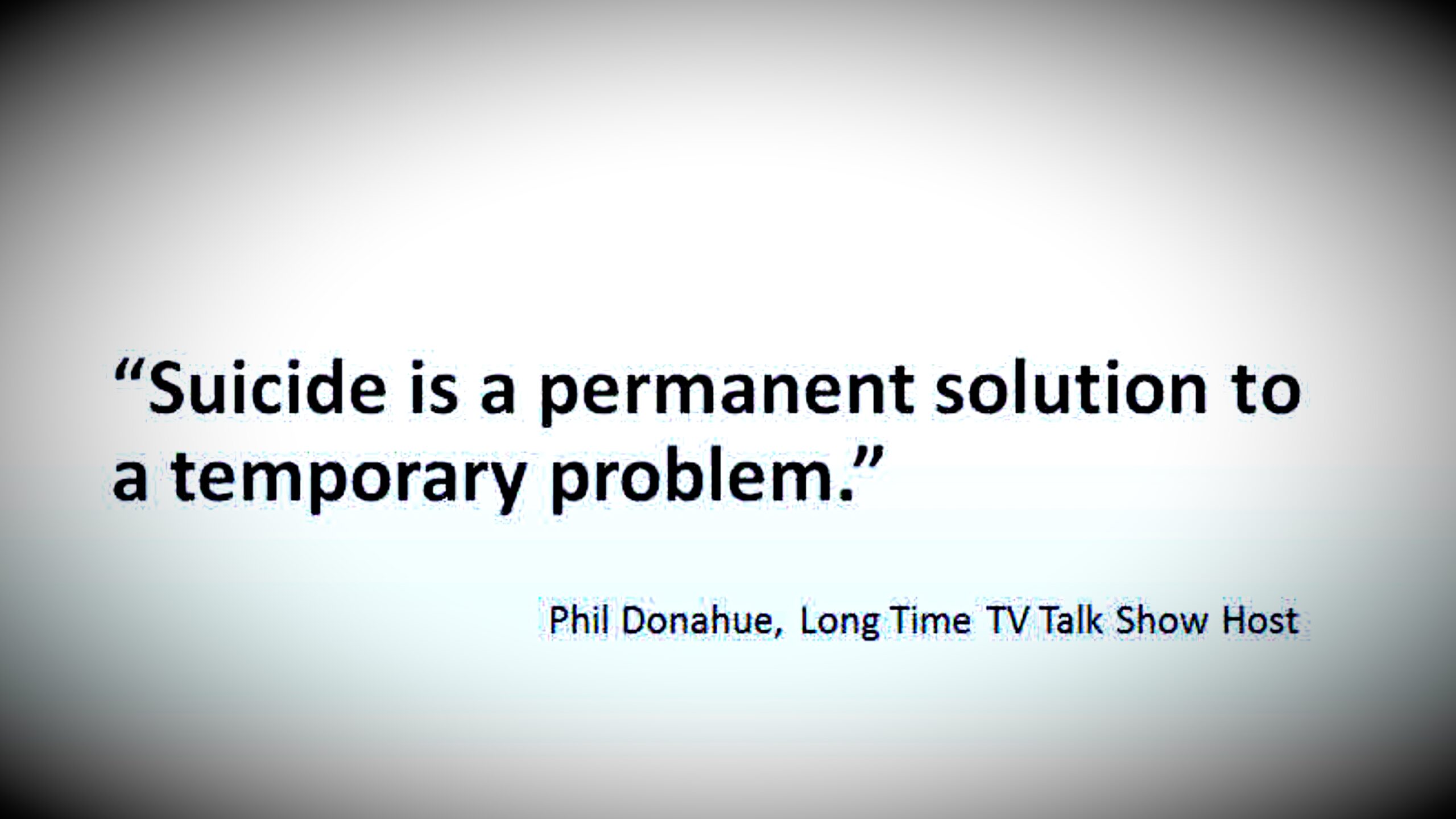
Not everyone thinks of killing themselves, but a distressing number of people do. #Suicidalideation, sometimes referred to as #suicidalthoughts, is exactly what it sounds like: it’s thinking about, perhaps making a plan, playing out in your mind what death by your own hand might be like.
Just because the term suggests that the action is not taken to its ultimate conclusion does not mean it is not to be taken seriously or that the person suffering is looking for attention.
What they may be looking for is someone to help them. And if you pay attention to the symptoms, you could be the one to help.
Those symptoms can range widely. Visible end-of-life preparations – giving away your property or possessions, saying farewell to friends and family, acquiring the means to the end such as a gun or lethal chemicals: these are perhaps the most obvious symptoms. Or you may observe an increase in risky #behaviors like #drug or #alcohol use, even reckless driving.
#Suicidalideation (or #suicideideation) can be part of a bigger-picture #mentalhealthissue, like a depressive or #bipolardisorder, which means that familiar symptoms and effects of those conditions can also be a factor: feelings of worthlessness, loss of interest in pleasurable activities, or #isolation from others.
It is also possible that there may be no symptoms at all. Some people keep their feelings hidden, their #behavior controlled, and show no particular signs of any distress. You think they’re ok and have no reason to doubt this.
In some instances, you might be concerned about someone’s mental state simply from observing what life has thrown at them. #Suicidalideation can stem from a great many causes, but what those causes mostly have in common is a sense of having lost control of – or purpose in – life. Legal or financial troubles; loss of job, property, health, or a loved one: traumatic changes in life can often have traumatic consequences for our #mentalhealth.
And if your #mentalhealth is already fragile, then #suicidalideation can sometimes be an effect of your condition or occasionally the medication you are taking for relief. #Depression, #anxiety, #bipolardisorder, #schizophrenia, #PTSD are just some of the #mentalhealthissues that can bring with them thoughts of #suicide.
When it comes to paying attention and trying to help, the literature on #suicidalideation mostly agrees that in many cases paying attention is, in and of itself, the needed help.
There is a persistent but mistaken belief that you or I can push someone in the direction of #suicide simply by mentioning it. There is no evidence that asking someone if they are feeling suicidal causes suicidal feelings. It’s not a case of: “Funny you asked, I was thinking I should spend more time working on a suicide plan.”
In fact, asking someone if they are feeling suicidal can show that you care about how they are feeling and offer an opportunity to talk about what may be a very difficult subject. Feeling suicidal – however that may be expressed – is a pretty clear sign that someone is in need of help. Showing someone you care about their distress and being open to listening to whatever it is they may have to say about it can be an important first step toward getting that person the support they need.
#Mentalhealthprofessionals may draw a distinction between passive and active #suicidalideation. The former – passive #suicidalideation – describes someone who might express or experience #suicidalthoughts but isn’t actually making any preparations for #suicide. The latter describes someone who both wishes they were dead and is planning to make that wish come true.
For most of us, the difference between the two may not be much more than semantic. The line between passive and active #suicidalideation isn’t particularly difficult to cross anyway: wishing you were dead escalates to trying to be dead with as little effort as buying a box of pills.
#James Donaldson notes:
Welcome to the “next chapter” of my life… being a voice and an advocate for #mentalhealthawarenessandsuicideprevention, especially pertaining to our younger generation of students and student-athletes.
Getting men to speak up and reach out for help and assistance is one of my passions. Us men need to not suffer in silence or drown our sorrows in alcohol, hang out at bars and strip joints, or get involved with drug use.
Having gone through a recent bout of #depression and #suicidalthoughts myself, I realize now, that I can make a huge difference in the lives of so many by sharing my story, and by sharing various resources I come across as I work in this space. #http://bit.ly/JamesMentalHealthArticle
Order your copy of James Donaldson’s latest book,
#CelebratingYourGiftofLife:
From The Verge of Suicide to a Life of Purpose and Joy
Whether their thoughts are visible or invisible, active or passive, someone who is having #suicidalthoughts is in distress. They need protection from those thoughts and the harm they might do to themselves. They need help. That help might come in the form of a consultation with a medical professional, or a call to an official source of assistance (TT’s Lifeline – a 24-hour hotline – is available at 800 5588).
But that help can start with a simple question: “Are you feeling suicidal?” It’s ok to ask – and essential to listen.
Remember to talk to your #doctor or #therapist if you want to know more about what you read here. In many cases, there’s no single solution or diagnosis to a #mentalhealthconcern.
Many people suffer from more than one condition.





